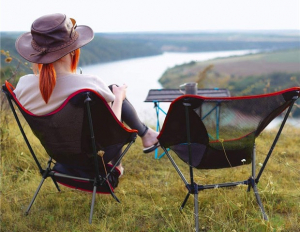News Center+ 查看更多
Mastering the Wilderness: A Camper's Guide to Wildlife Safety and Weather Wisdom+ 查看更多
Understanding Local Wildlife for Safe Camping
Embarking on a wilderness camping adventure necessitates a deep understanding of the wildlife inhabitants that one may encounter. Prior to venturing into the wild, it’s imperative to conduct thorough research on the species that are native to the area. This knowledge goes beyond mere identification; it encompasses learning about their behavior patterns, diets, and possible threats they may pose to humans. One should always maintain a respectful distance from wildlife, resisting the urge to feed, approach, or capture that perfect selfie, as such actions can trigger aggressive responses or habituate animals to human presence, thereby increasing future risks.
Securing food sources is critical in minimizing encounters with curious animals. Elevated storage systems or animal-proof containers serve as effective deterrents to prevent the aroma of food from attracting wildlife to your campsite. Furthermore, maintaining a pristine campsite by promptly disposing of food remnants and waste significantly reduces the likelihood of unwanted visitors. When traversing the wild, particularly during dusk or dawn when many animals are active, making noise by talking loudly or wearing bells can alert animals to your presence, allowing them to avoid you.
Preparing for Sudden Weather Changes
Weather can be unpredictable and change swiftly, catching campers off-guard. It is essential to review the weather forecast before setting out and to prepare gear accordingly. This includes appropriate clothing that can be layered to provide warmth while allowing breathability as conditions change. Your shelter should be robust enough to withstand harsh weather, and knowing how to swiftly erect a temporary shelter can be life-saving in emergencies.
When thunderstorms loom, campers should avoid open spaces, bodies of water, and tall, isolated trees to minimize the risk of lightning strikes. Always have a contingency plan, such as a secondary shelter or evacuation route, particularly in extreme weather scenarios. By staying informed and prepared, campers can adapt to weather changes safely without compromising their outdoor experience.
Comprehensive Outdoor Skills for Campers
Possessing a foundational knowledge of first aid is indispensable for any camper. Carrying a well-stocked first aid kit and knowing how to utilize its contents can make a significant difference in an emergency. Communication is equally important; ensuring phone batteries are charged and carrying alternative signaling devices like a whistle or mirror can help in times of distress.
Sharing your travel itinerary with friends or family, including expected return times, is a safety net that ensures others are aware of your whereabouts. Navigational skills using a map and compass, supplemented with a GPS device, prevent disorientation in the wilderness. Moreover, investing in high-quality, field-tested camping gear provides the necessary protection and functionality needed in the wild.
Camping in the wild is not just about enjoyment and exploration; it’s about being responsible for your safety. By adhering to these guidelines, campers can mitigate risks and confidently indulge in their outdoor adventures, creating memories that last a lifetime without compromising their well-being.

